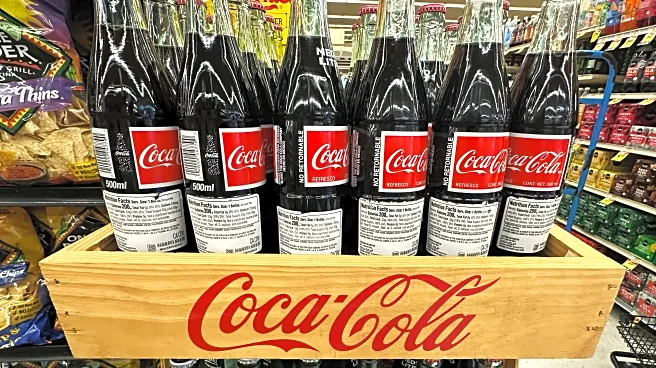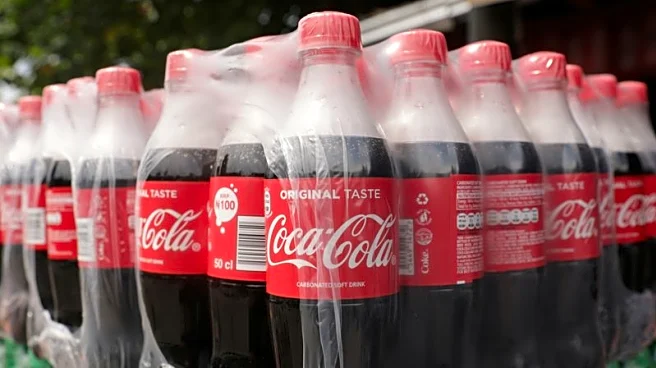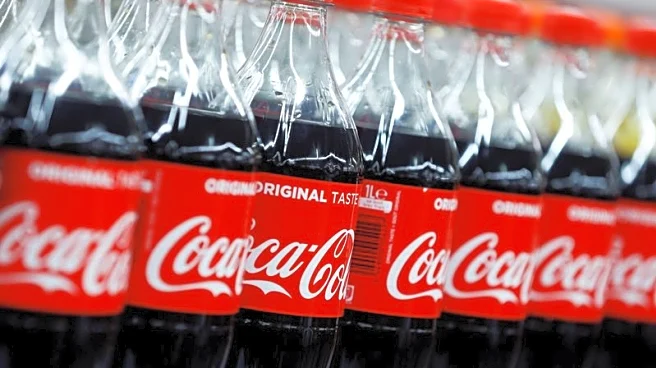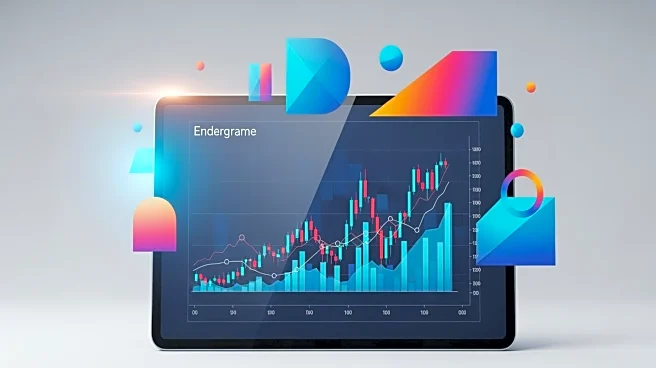What's Happening?
Coca-Cola has reported a 6% increase in organic revenue for the third quarter, reaching $12.41 billion. This growth is attributed to the sales of premium beverages and mini cans, despite a general tepid
demand in the U.S. and other regions. The company has observed a divergence in consumer behavior, with higher-income consumers opting for more expensive brands like Smartwater and Topo Chico, while middle- and lower-income consumers face financial pressures. Coca-Cola's strategy includes offering smaller package sizes, such as the 7.5-ounce mini cans, to maintain affordability. The company also announced a refranchising deal in Africa, selling a 75% stake in Coca-Cola Beverages Africa to Coca-Cola HBC AG for $2.55 billion.
Why It's Important?
Coca-Cola's financial performance highlights the company's ability to adapt to changing consumer preferences and economic conditions. The focus on premium products and smaller packaging sizes allows Coca-Cola to cater to diverse consumer segments, potentially stabilizing its market position amid economic uncertainties. The refranchising strategy in Africa aligns with Coca-Cola's long-term goal of focusing on brand building and innovation, while allowing bottlers to invest in manufacturing. This approach could enhance operational efficiency and profitability, benefiting stakeholders across the supply chain.
What's Next?
Coca-Cola plans to continue its focus on premium products and affordability strategies. The refranchising deal in Africa is expected to close by the end of 2026, potentially impacting Coca-Cola's market dynamics on the continent. The company will likely monitor consumer trends closely to adjust its product offerings and pricing strategies accordingly. Additionally, Coca-Cola's ongoing efforts to manage tariffs and other economic challenges will be crucial in maintaining its growth trajectory.













